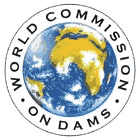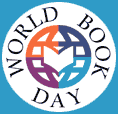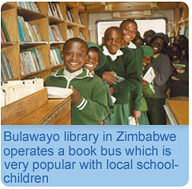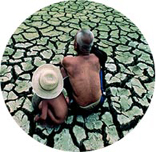| |
|

|
|
|
The
World Commission on Dams
 On
November 16th, the World Commission on Dams published a report on
the role of dams in meeting development needs. Although
there are never perfect solutions, the Commission's report marked
a change in the decision-making approach to building dams. For the
first time, the Commission sought the ideas of 800 experts from
79 countries, representing the full range of viewpoints on the benefits
and drawbacks of dams. From this research, the Commission has drawn
up a list of guidelines that can be used to decide whether dams
should be built in the future. On
November 16th, the World Commission on Dams published a report on
the role of dams in meeting development needs. Although
there are never perfect solutions, the Commission's report marked
a change in the decision-making approach to building dams. For the
first time, the Commission sought the ideas of 800 experts from
79 countries, representing the full range of viewpoints on the benefits
and drawbacks of dams. From this research, the Commission has drawn
up a list of guidelines that can be used to decide whether dams
should be built in the future.
For
more information on the Commission and its report, check out their
website, www.dams.org
|
|
Improving
lives through reading
 Children
and adults in many countries do not have access to interesting,
up-to-date materials that help learning and a love of reading. Children
and adults in many countries do not have access to interesting,
up-to-date materials that help learning and a love of reading.
 To
support literacy, education and training, Book Aid International
supplies over 750,000 books a year to more than 60 countries. They
work in partnership with libraries and community groups that are
finding practical ways to make books and information available to
those who need them most. To
support literacy, education and training, Book Aid International
supplies over 750,000 books a year to more than 60 countries. They
work in partnership with libraries and community groups that are
finding practical ways to make books and information available to
those who need them most.
Book Aid International is also the official charity for World Book
Day, a worldwide celebration of books and reading that is taking
place on 1st March 2001.
To find out more about how you and your school can support Book
Aid International and participate in World Book Day, check out their
website, www.bookaid.org
or contact them at 39-41, Coldharbour Lane, Camberwell, London SE5
9NR. Tel: 020 7733 3577 or e mail: [email protected]
|
 |
Without
an agreement on climate change, serious droughts and other extremes
in the weather may become more commonplace. |
|
�Still
Pictures
|
"No
Change" on Climate Change
The
international summit on Climate Change in The Hague, Holland collapsed
without agreement in November 2000. Whilst European representatives
were willing to make cuts in greenhouse gases like CO2 that cause
global warming, another group of developed countries led by USA
thought differently. Along with Japan, Australia and New Zealand,
the US representatives offered to create 'carbon sinks' by planting
forests that soak up CO2, but they refused to make changes to their
economies to reduce their greenhouse gas emissions.
The
U.S.A. has only 4% of the world's population but is responsible
for nearly a quarter of the C02 that people add to the atmosphere.
As new records are set in extreme weather events, it is nearly always
the poorest countries that are worst affected, even though they
contribute the smallest amount of greenhouse gases. Sea level rises,
droughts, and more extreme floods and hurricanes have already had
devastating effects on many LEDC's and many scientists believe that
this is just the beginning.
|
|

|
To
find out more about the causes and effects of global warming,
check out the website, www.schools.detr.gov.uk/global/
|
|
|
Competition
Winners of the June Goldman Prize
The winners of the 'June Goldman' prize from Global Eye 13 (Autumn
2000) are Alexandra Bolton of
Shrewsbury High School, Shrewsbury and Brenda Nugent of St.
Catherine's College, Armagh, Northern Ireland. Congratulations!
The winners will receive a copy of the 'Music on the Line' video
and audio CD for their school and one for themselves. Thanks to
all those who entered the competition, and we hope you will have
better luck in this issue's competitions! Have a look on the Competitions
pages... Alfred Goldman, a longstanding supporter of Worldaware,
has kindly donated a fund for our competition prizes in memory of
his late wife, June.
|
| |
|

|
|
|

